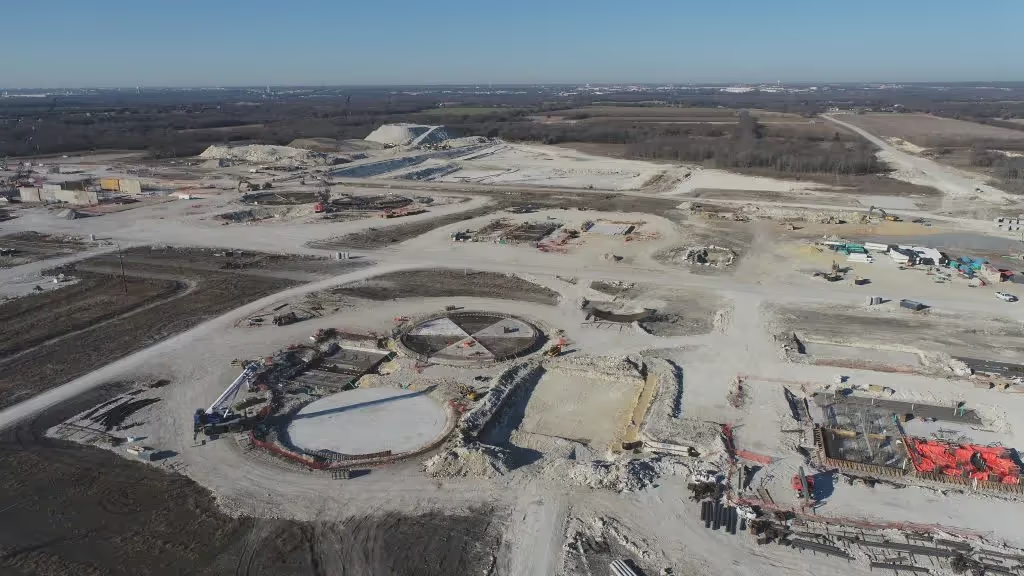Capital projects represent substantial investments to acquire or enhance fixed assets such as infrastructure and buildings. These projects demand expert management to ensure they are completed on time, within budget, and to the required quality standards. Project and program managers' roles are central to this process, each playing a vital role in steering these projects towards their strategic objectives.
For those working with capital projects, we often come across the terms project manager and program manager. Knowing the difference between the two can be confusing, especially since some might use and interchange these terms loosely.
However, these two have fundamental differences, especially in their roles and responsibilities in capital projects and how they can work together to make a project a success.

What is a Project Manager?
A project manager is a professional who leads an individual project within the broader spectrum of capital projects. Their primary responsibility is ensuring the project is delivered successfully, adhering to predefined constraints such as budget, time, and quality.
Key Responsibilities of Project Managers in Capital Projects
Project managers are pivotal in:
- Developing Detailed Project Plans: Crafting comprehensive plans that outline project scopes, goals, and deliverables.
- Mitigating Risks: Proactively identifying potential risks and devising strategies to mitigate them.
- Procurement: Identify consultants, contractors, and other third-party vendors to help execute the capital project.
- Managing Budgets: Ensuring projects are completed within the allocated budget.
- Ensuring Quality Standards: Overseeing the project outputs to meet the required quality benchmarks.
- Facilitating Effective Communication: Serving as the primary liaison among stakeholders, ensuring clear and consistent communication throughout the project lifecycle.
Scope of Work of a Project Manager in Capital Projects
The scope of work for a project manager involves overseeing all aspects of a specific project. This includes initiating the project, planning the various stages, executing the project plan, monitoring progress, and closing the project once the objectives are met.
Who Does a Project Manager Deal Closely With?
Project managers typically report to senior management or the project sponsor. They work closely with a project team that may include project coordinators, engineers, procurement specialists, and other relevant personnel. Their role involves constant interaction with stakeholders to ensure alignment and project success.

What is a Program Manager?
A program manager oversees a group/portfolio of related projects, aiming to ensure that they collectively contribute to the organization's strategic goals. Their focus extends beyond the success of individual projects to encompass the strategic alignment and integration of all projects within the program, achieving a net benefit from this 'helicopter view.'
Key Roles of Program Managers in Capital Projects
Program managers are essential for:
- Strategic Planning: Aligning program objectives with organizational strategies and maintaining oversight over project execution.
- Governance: Developing and implementing consistent project management standards and practices across projects to improve efficiency and effectiveness for the entire program of work. This includes templatizing work such as cost trackers, risk registers, management plans, and reporting.
- Optimizing Resource Allocation: Ensuring resources are efficiently distributed across the program to achieve strategic goals.
- Engaging Stakeholders: Managing relationships and communications with stakeholders at a strategic level.
- Realizing Program Benefits: Monitoring the achievement of benefits across the program, ensuring it delivers value to the organization.
Scope of Work of a Program Manager in Capital Projects
The scope of work for a program manager involves overseeing multiple projects within a program. They ensure these projects are aligned with the broader organizational strategy and that they collectively deliver the intended benefits and value.
Who Does a Program Manager Deal Closely With?
Program managers report to executive management or a steering committee. They interact with project managers, senior stakeholders, and other program-related personnel to ensure strategic objectives are met. Their role involves higher-level oversight and coordination among various project teams.

Differentiating Project Managers from Program Managers in Capital Projects
Project managers and program managers play distinct roles in capital projects. Project managers focus on the successful execution of individual projects, ensuring timely delivery, budget adherence, and quality standards. They engage in detailed planning, risk mitigation, and hands-on management of tasks and resources.
Program managers, on the other hand, oversee multiple related projects, ensuring they align with strategic goals and deliver collective benefits. They focus on strategic planning, resource optimization, and maintaining alignment across projects. Their scope is broader, encompassing the integration and strategic direction of an entire program.
While project managers work closely with project teams and report to senior management, program managers interact with a wider range of stakeholders, including executive management and project managers. They report to executive management or a steering committee and provide higher-level oversight and coordination.
Understanding these differences is crucial for organizations to effectively leverage the strengths of both roles and ensure the successful delivery of capital projects.
Similarities of Project Manager and Program Manager
Despite their differences, there are a few things that both these roles intersect. This does not mean that you should confuse one over the other, but rather look at it as a positive edge in your team.
Both project managers and program managers aim to deliver successful outcomes for their respective projects and programs. They both engage in planning, risk management, resource allocation, and stakeholder communication.
Also, both roles require strong leadership, effective communication, and the ability to manage relationships with stakeholders. They both ensure that project or program goals align with stakeholder expectations and organizational objectives.
Project Managers vs Program Managers: How They Work Together to a Successful Capital Project
The relationship between project and program management in capital projects is characterized by a dynamic interplay of strategic oversight and tactical execution. Effective communication and collaboration between program and project managers are crucial for maintaining alignment between individual project outputs and the broader strategic goals of the program and portfolio.

Program managers must articulate strategic goals and priorities to project managers, ensuring projects align with the program's overarching goals. On the other hand, project managers provide essential updates on project progress, risks and opportunities, which can inform strategic decisions at the program level for opportunity realization.
A vital aspect of this interplay is the management of dependencies between projects within the program. Program managers work closely with project managers to identify and address resource and schedule dependencies, ensuring that conflicts are resolved and that projects support one another in achieving the program's objectives.
A good example is procurement. It may be better for the Program Management Office to obtain a key common material across all projects rather than for each project, one by one.
This synergy maximizes the value and strategic benefits of capital projects. Program managers focus on delivering strategic benefits and value at the organizational level, while project managers ensure their projects meet specific objectives within set constraints.
Conclusion
The roles of project and program managers are distinct and complementary within the context of capital projects. By understanding and leveraging the unique responsibilities and interdependencies of these roles, organizations can enhance their project management practices, ensuring the successful delivery of capital projects that align with strategic goals and deliver value.
Together, they play a pivotal role in translating the organization's investment in capital projects into tangible outcomes, ensuring that both project-specific goals and broader strategic objectives are achieved. This collaborative effort between project and program management is essential for the successful delivery and value realization of capital projects, demonstrating the importance of both roles in achieving organizational success.












%2520on%2520Construction%2520Sites%2520_%2520Australia%2520(1).avif)
.avif)



.avif)